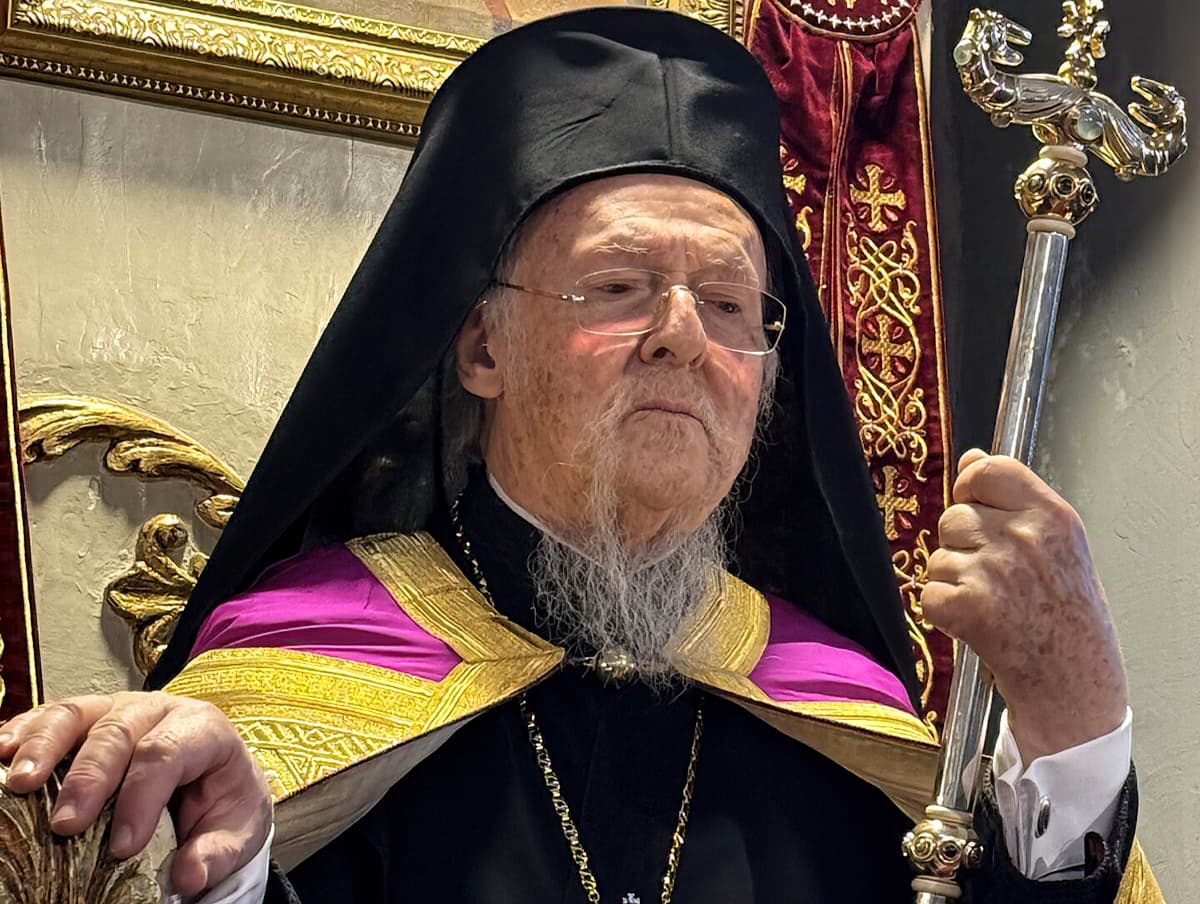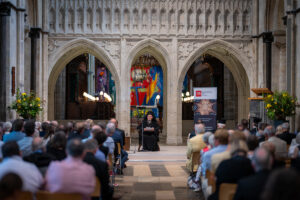Speaking recently at the University of Strasbourg in France, His All-Holiness Ecumenical Patriarch Bartholomew, speaking in French, called the attention of all people of good will to the need for careful stewardship of the environment, saying: “Climate change, or rather the climate crisis, which is the culmination of the contemporary ecological problem, is not a ‘future scenario,’ but a tangible and painful reality.”[1]
His All-Holiness also addressed some of the common objections to the contention that a climate crisis is at hand: “The fact that climate changes have always existed on Earth is not a reason for complacency, as it is certain that the contemporary ecological problems—such as the rapid decrease in biodiversity, the pollution of the seas and the atmosphere, the rise of ocean levels, extreme weather phenomena, the social consequences of the ecological crisis such as water scarcity and food crises, migratory flows due to climate reasons, and many other related issues—are all anthropogenic in origin.”
Rejecting a response characterized by resignation or gloom, the Ecumenical Patriarch pointed to the way forward: “The destruction of the natural environment begins in the mind of man, and therefore, from there the healing must begin. What is needed is a ‘Copernican shift’ in the spiritual realm and our value system, a radical change in mentality. Otherwise, we will treat the symptoms of the crisis, while the source of the woes remains active and unscathed.”
These remarks expanded upon statements His All-Holiness made on September 1, 2024, the Ecclesiastical New Year, which he has designated also as the Day of Prayer for the Environment. On that occasion also, he called for “an axiological ‘Copernican turn,’ a radical change of mentality globally, a substantial revision of the relationship between humankind and nature. Otherwise, we will continue to treat the catastrophic consequences of the ecological crisis, while leaving intact and active the roots of the problem.”
In dealing with this crisis, Ecumenical Patriarch Bartholomew noted in his speech in Strasbourg, the Orthodox Church has led the way: “We are proud because the Ecumenical Patriarchate was the first Church to promote the ecological message of Christianity, to understand and present the ecclesiastical life as ‘applied ecology.’” In his speech on the Day of Prayer for the Environment, His All-Holiness emphasized the necessity for Christians of other faith traditions to join in this effort: “We have struggled and still strive for an inter-Orthodox and inter-Christian collaboration for the protection of humanity and creation, as well as for the introduction of this subject in interfaith dialogue and common actions of religions.”
The Ecumenical Patriarch has stressed for many years that concern for the environment is a natural outgrowth of the Christian Faith. “The Ecumenical Patriarchate’s concern for the natural environment,” he said in Strasbourg, “was not simply a reaction to the contemporary ecological crisis. This was only the occasion, not the cause, for developing its ecological traditions in due time. The protection of the natural environment is a consequence and extension of everything we experience in the Church, whose entire life has an ecological essence and reference. The Church, in itself, is a victory against all those attitudes that, ideologically and practically, produce alienating tendencies, such as greed, the self-deification of man, indifference to others, and to future generations, among others.” It is these tendencies that give rise to the societal, political and economic factors that have led to the climate crisis. Its answer, then, lies in a wholehearted return to core principles of the Holy Orthodox Faith, and of the Christian tradition in general.
Speaking at a climate change conference organized by the Region of North Aegean on September 6, 2024, His All-Holiness once again drew attention to the relationship of care for the environment to the Christian commitment: “The ecological witness of the Ecumenical Patriarchate has prompted theological inquiry into the deeper spiritual, religious, and moral dimensions of environmental issues, while emphasizing the ecophilic aspects of Christian anthropology and cosmology.”
His All-Holiness also said in his address for the Day of Prayer for the Environment that “we particularly emphasize the need to understand that the contemporary ecological crisis impacts first and foremost the poorer inhabitants on earth.” This stands to reason, as the crisis itself is a result of “greed, the self-deification of man, indifference to others, and to future generations, among others.”
As we strive, then, to strengthen our faith commitment and throw off these tendencies during the remainder of Holy and Great Lent, let us bear in mind the wisdom of the Ecumenical Patriarch, that intrinsic to rejection of those inclinations is a thoughtful care for the health and future of the earth, our common home.
[1] Jan. 27, 2025.







